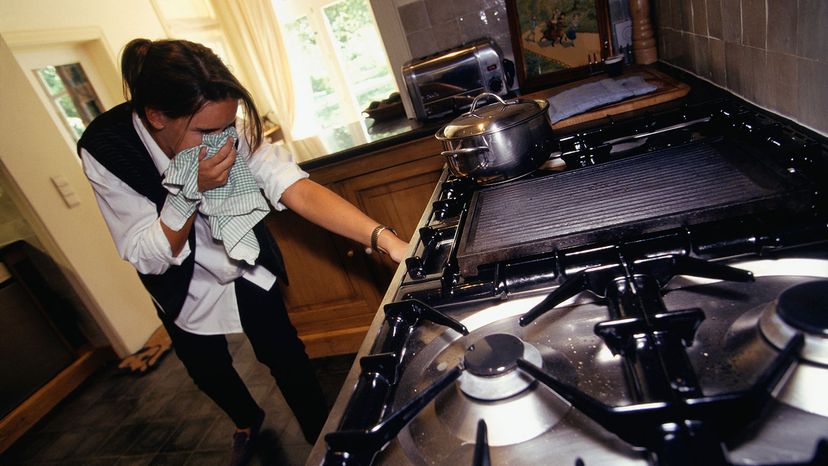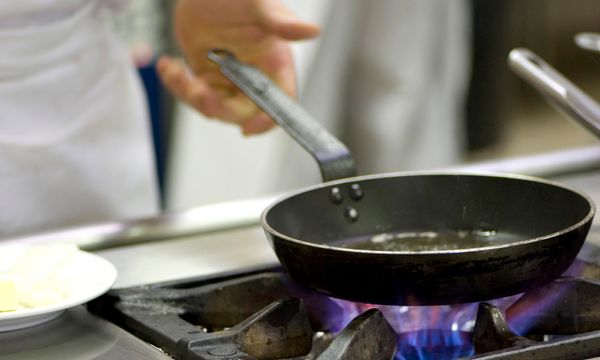
That sulfuric, rotten egg odor that signals a natural gas leak isn't an ordinary component of the carbon-hydrogen compound. Because of the potential danger associated with natural gas leaks, suppliers add the noxious scent to natural gas as an olfactory warning that the harmful vapors are loose in the air.
This precautionary measure indicates the inherent hazards of natural gas that can, at the right levels, kill you. Inhaling high concentrations can also lead to asphyxia (when the body is deprived of oxygen) and possibly death. Early symptoms of asphyxia include fatigue and chest pain.
Advertisement
Although generally safe to use in the home, when natural gas does not burn up completely because of faulty installation or lack of ventilation, it emits a byproduct of carbon monoxide. The more carbon monoxide present in the air, the less oxygen you can inhale, potentially killing you. At least 430 people in the United States die of unintentional carbon monoxide poisoning every year. And 50,000 people visit the ER for accidental carbon monoxide poisoning annually [source: CDC]. Unvented space heaters are the most common source of carbon monoxide poisoning [source: Johns Hopkins Medicine]. But fumes are also produced by furnaces, stoves, kerosene heaters and vehicles "warmed up" in garages.
That said, natural gas is considered one of the safest and cleanest-burning fossil fuel sources. When correctly burned, natural gas produces mostly water vapor and carbon dioxide and fewer greenhouse emissions than wood, coal and oil, making it a relatively clean fuel [source: EIA]. About half the homes in the United States use gas for heating and cooking [source: EIA].
Natural gas has become a widespread energy source because it's highly combustible, which means that it can produce large amounts of heat when you burn small amounts. Consequently, a natural gas leak can increase the risk of fire and explosion since it spreads quickly and combusts easily. An electrical spark or fire source can set this off if you have a leak in your house.
If you suspect a natural gas leak inside, immediately stop what you're doing. Do not flip any electrical switches, unplug anything or use a telephone. Go outside. Then call your gas company, so they can send someone to inspect your home.
What if you have a cold or a poor sense of smell? Is there any way to detect a natural gas leak besides that signature scent?
Advertisement
